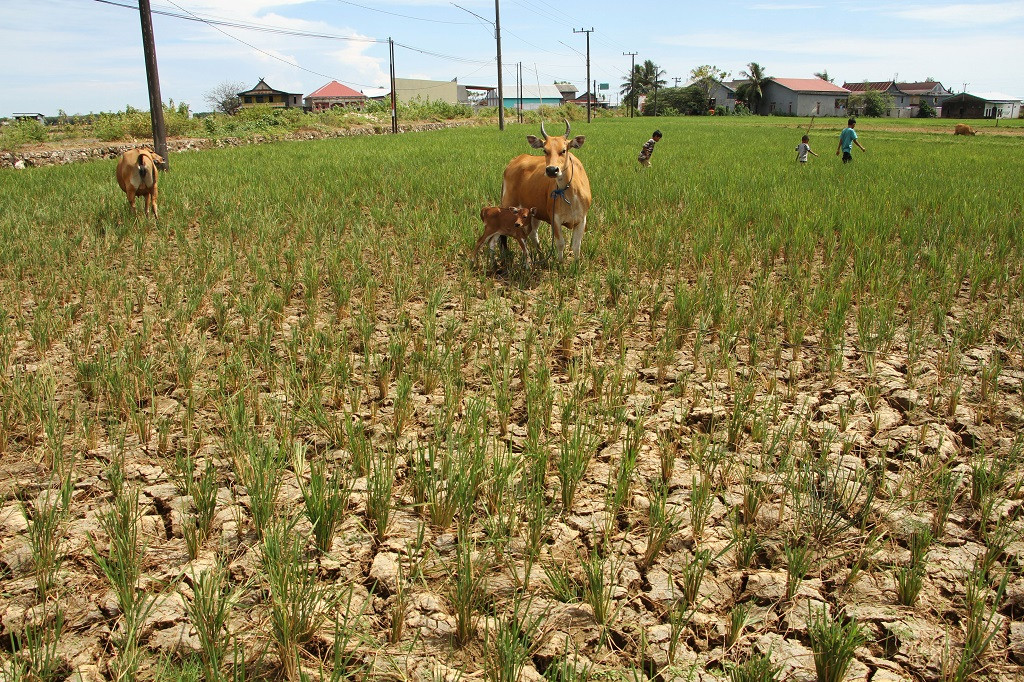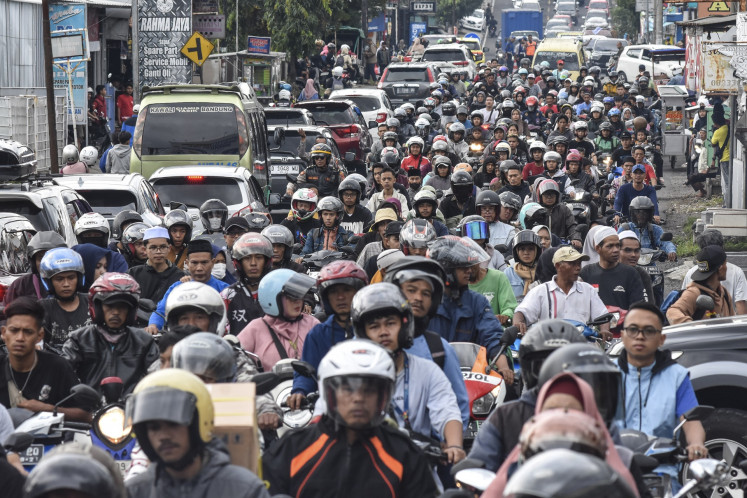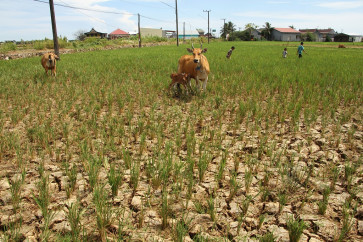Popular Reads
Top Results
Can't find what you're looking for?
View all search resultsPopular Reads
Top Results
Can't find what you're looking for?
View all search resultsAgriculture among first Indonesia's industries hit by climate change
The BMKG has found that the average daily temperature in June was 27 degrees, 0.5 degrees higher than the average for the same month between 1991 and 2020.
Change text size
Gift Premium Articles
to Anyone
Indonesia felt moderate impacts from global heating in July, which was likely the world’s hottest month on record, with agriculture among the first industries to be affected.
The United Nations’ World Meteorological Organization (WMO) and the European Union’s Copernicus Climate Change Service predicted on Thursday that July would be the hottest recorded month globally.
The WMO found that the average surface air temperature for the first three weeks of the month was 16.95 degrees Celsius, above the 16.63 degrees recorded in July 2019, the warmest month on record.
Meanwhile, large parts of the northern hemisphere are experiencing heat waves. Cities in Asia, Africa, Europe and North America are reporting record-breaking high temperatures. The extreme heat has also affected forest and land fires in Canada and Greece.
Indonesia has not been entirely spared the heat, which is starting to affect food production in the country.
Aris Pramudia, a climate and agricultural researcher with the National Research and Innovation Agency (BRIN), recently performed fieldwork in Malang, East Java, to study the growth of chili and shallots during this year’s El Niño event.



















